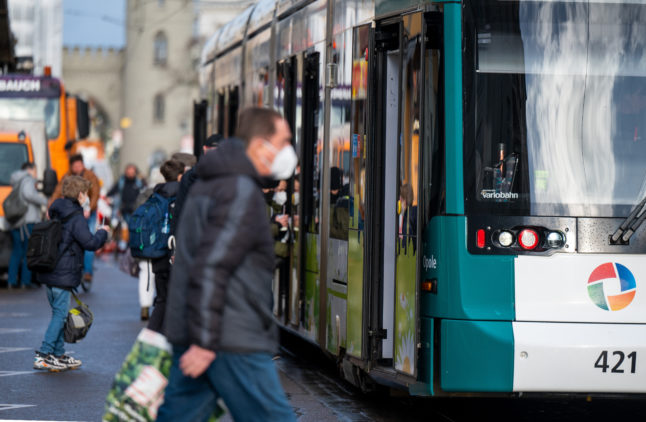Mandatory face masks for air travel around the EU are set to be dropped from Monday, May 16th, although it depends on the country’s regulations and airlines can still require passengers to wear masks.
But the change could pave the way for Germany to ditch compulsory masks on public transport.
On Thursday, Transport Minister Volker Wissing suggested he was in favour of lifting the requirement for people to wear masks on buses, trains and trams.
“We should proceed uniformly throughout Europe and abolish compulsory masks, especially in air travel,” said Wissing: “I see the same need for adjustment for compulsory masks in buses and trains (in Germany).”
READ ALSO: Covid face mask rules on flights in Europe set to be eased
Infectious Disease Protection Act would have to be amended
Wissing’s statement refers to the relaxation of the obligation to wear masks in air traffic by the The European Union Aviation Safety Agency (EASA) and European Centre for Disease Prevention and Control (ECDC).
However, the recommendation of the EU authorities is dependent on its implementation in national law. According to the recommendation, if there is a state requirement to wear a mask on public transport at the point of departure or destination, this should also continue to apply onboard the aircraft.
This means that if Germany doesn’t overturn the mask requirement for public transport (including air travel), passengers will still have to wear masks on flights with German airlines and at German airports.
In order to lift the mask requirement in these places, the Infection Protection Act would have to be amended, reported German daily Tagesschau. The law is currently valid until September 23rd 2022.
German airlines say they are in favour of abolishing the mask requirement, and making it voluntary instead.
Germany recently relaxed face-mask rules – but mandatory masks remain on public transport and in places like hospitals and care homes.
READ ALSO: Five things to know about the Covid pandemic in Germany right now
The Association of German Transport Companies also supports getting rid of face masks on public transport.
“We have been experiencing full football stadiums, concerts and events without mandatory masks for months. And also in restaurants, shopping centres and supermarkets, more and more people are out and about without masks,” said Chief Executive Oliver Wolff.
But the Health Ministry said that compulsory masks would continue for the time being. Children under the age of six are exempt from wearing masks.



 Please whitelist us to continue reading.
Please whitelist us to continue reading.
Member comments